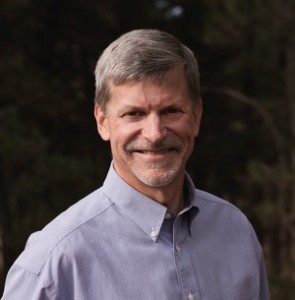
Originally from South Carolina, Henry has been a trial lawyer and a city?judge before being called to the ministry. He has worked with prostitutes in San Francisco and people groups in North Africa.
I also want to be the first to congratulate Henry on becoming Dr. Deneen!?? I happen to be his dissertation advisor and first reader, and this past Wednesday Henry passed his oral defense of his dissertation.? Therefore he has jumped all the hoops and is now officially a doctor and a lawyer!

Emotional?Intelligence is known as one of the “soft skills” of work and leadership, which include things like being able to connect with people, to look them in the eye when speaking, or to be able to walk into a crowded room and connect with others without shying away into the corner. Traditionally when being evaluated for a job managers tend to look for hard skills such as experience performing a task, where you went to school, etc.
Henry recently worked on a project with his team, trying to increase their emotional intelligence. They started by reading 2 books on emotional intelligence (see the list at the bottom), took the?Mayer-Salovey-Caruso Emotional Intelligence Test (MSCEIT), talked about the process, and then looked at the changes in themselves at the end of the three month period.
During this experiment, three themes emerged:
- ?Addressing conflict in a healthy way – Many people seem to have “terminal niceness,” and do not know how to confront colleagues and family in a way that addresses issues, and so they avoid them and allow them to get worse.
- I can do this better than anyone else can – This idea prevents us from mentoring other peole so that they can step up in our organizations and do great work, so that we do not have to shoulder the load ourselves.
- Everybody does not think the way we do –?We expect people to think and react to things the way we do and when they don’t conflict and resentment ensues.
X-Ray Snapshot
Everyone in the group took an ‘X-ray snapshot’ of themselves from an emotional point of view. ?This addresses many categories:
- Commitment-What are you committing to do, such as trying to look people in the eye more or be a better listener?
- What are you doing or not doing? If you are trying to understand other’s emotions, an example could be not looking them in the eye.
- The hidden/competing commitment. Something hidden in your heart, such as choosing not to understand someone because you do not think it is as important as what you think.
- The big assumption, such as no one’s idea is as good as mine, or that conflict is bad.
The x-ray that comes out of this process is a look into our hearts.
If you have questions for Henry, you can reach him at?[email protected]
Book List from this episode
- Leadership and Self-Deception: Getting Out of the Box – The Arbinger Institute
- Emotional Intelligence 2.0 – Bradberry, Travis and Jean Greaves
- Awareness: The Perils and Opportunities of Reality – De Mello, Anthony
- Primal Leadership: Realizing the Power of Emotional Intelligence – Goleman, Daniel, Annie McKee, and Richard E Boyatzis
- Immunity to Change: How to Overcome it and Unlock the Potential in Yourself and Your Organization – Kegan, Robert and Lisa Laskow Lahey
- The Power of Full Engagement: Managing Energy, Not Time, Is the Key to High Performance and Personal Renewal – Loeher, Jim and Tony Schwartz
The website is www.mhs.com.

